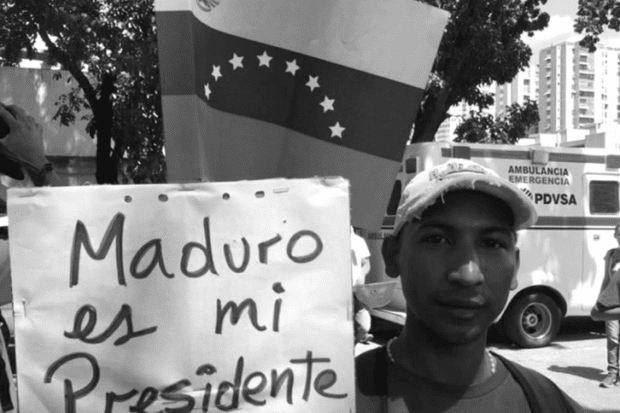
By Leni Villagomez Reeves
Alex Saab is a Venezuelan diplomat who was en route from Caracas to Tehran on June 12, 2020, when his plane was diverted to Cabo Verde, a small island nation off the coast of West Africa, for refueling. He was removed by force by the Cabo Verde police at the insistence of the U.S. government, although no crime had been committed and no arrest warrant existed.
Saab was held for 16 months while the United States processed his extradition. Then, even before the extradition hearings in Cabo Verde were completed, he was taken to the United States on Oct. 18, 2021, for trial.
Saab was en route to Iran to negotiate shipments of fuel and supplies for Venezuela. He was born in Colombia but is an accredited diplomat for Venezuela. He is accused of trying to procure humanitarian supplies of food, fuel and medicine from Iran, in legal trade but in violation of illegal U.S. sanctions.
Saab was indicted on eight counts of “money laundering” before U.S. Magistrate Judge John J. O’Sullivan of the U.S. District Court for the Southern District of Florida. He will be allowed to enter a plea in two weeks.
The charges are that he procured food for a government program that distributes food to the people of Venezuela, providing subsidized food ration boxes to poor Venezuelans. That is what the “money laundering” charges mean.
The reasoning of the United States, expressed by the Department of Justice, is that “By offering food through this program, the former regime is able to maintain its influence because many Venezuelan citizens do not have enough money to buy food and therefore depend on the rations CLAP provides to survive.”
Of course, the fact that it is U.S. sanctions, first imposed in December 2014, that have intentionally wrecked the economy of Venezuela and impoverished its citizens is not mentioned either by the U.S. government or the U.S. media, which parrots government statements uncritically.
And what they mean by “the former regime” is the current elected fully functioning government of Venezuela. There seems to be a casual lack of concern about the survival of those people who depend on the food supplied by the program the United States is determined to block.
Saab’s case raises dangerous precedents in terms of extraterritorial judicial abuse by the United States in enforcing unilateral coercive economic measures on other countries. In recent decades, the United States has increasingly used sanctions as an instrument of foreign policy.
Some 39 nations and territories are under direct or indirect sanctions. Most of these sanctions are not authorized by the UN Security Council, and many of them are enacted by the United States alone. They are called “unilateral coercive measures” at the United Nations.
These U.S. decrees and legislation are “extraterritorial” when they assume the right to impose regulations, restrictions and penalties on non-U.S. countries, companies and individuals. Sanctions primarily hurt civilians. Humanitarian “exceptions” have not worked.
Saab’s attorney, Jose Manual Pinto Monteiro, said, “Alex Saab, the special envoy, and ambassador of Venezuela was kidnapped by the United States and taken to the U.S. This procedure violates all the rules of international law,” he said.
Bad as the effect of unilateral coercive economic measures, sanctions and blockades are, kidnaping a foreign diplomat in a third country is carrying U.S. international terrorism to a new higher level.
*****
Leni Villagomez Reeves is a local physician and activist. Contact her at lenivreeves@gmail.com. Check out her news and views about Cuba on Facebook (fresnosolidarity/).

